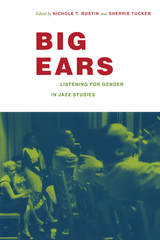eISBN: 978-0-8223-9590-4 | Cloth: 978-0-8223-5352-2 | Paper: 978-0-8223-5366-9
Library of Congress Classification ML3503.G4S55 2013
Dewey Decimal Classification 781.6309667
Shipley shows how young hiplife musicians produce and transform different kinds of value—aesthetic, moral, linguistic, economic—using music to gain social status and wealth, and to become respectable public figures. In this entrepreneurial age, youth use celebrity as a form of currency, aligning music-making with self-making and aesthetic pleasure with business success. Registering both the globalization of electronic, digital media and the changing nature of African diasporic relations to Africa, hiplife links collective Pan-Africanist visions with individualist aspiration, highlighting the potential and limits of social mobility for African youth.
The author has also directed a film entitled Living the Hiplife and with two DJs produced mixtapes that feature the music in the book available for free download.
See other books on: Entrepreneurship | Ghana | Living | Popular music | Songs and music
See other titles from Duke University Press



























